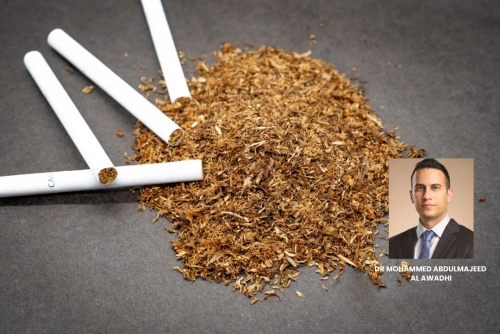Bahrain is entering 2025 with a renewed focus on combating the use of herbal and non-herbal tobacco substitutes. Recently, Parliament approved a plan to impose harsh penalties on those involved in dealing with these substances, including popular products like suwaika, Indian paan, and tambak. The government is taking a strong stance against these substances due to their addictive properties, especially among younger demographics.
The penalties for offenders have been significantly increased this year, with fines as high as BD100,000 and possible jail time of up to one year. Ghanim bin Fadhel Al Buainain, Minister of Parliamentary Affairs, emphasized that these measures are necessary to protect the health of the public, especially the youth. The Ministry of Health has reported a concerning escalation in violations related to these substances, prompting the need for stricter enforcement and penalties.
In addition to fines and jail time, authorities now have the power to temporarily shut down businesses and confiscate illegal materials involved in dealing with herbal and non-herbal tobacco substitutes. This comprehensive approach is aimed at curbing the availability and use of these harmful substances in Bahrain. The proposal received unanimous support in Parliament and will now be reviewed by the Shura Council for further consideration.
While there is broad agreement on the need for tougher measures, some MPs have expressed concerns about ensuring fairness in enforcement. MP Mohammed Al Rifai highlighted the importance of distinguishing between harmful substances and therapeutic products like nicotine gum and patches, which are used to help people quit smoking. It is crucial to avoid mistakenly targeting these beneficial products in the crackdown on illegal substances.
MP Mohammed Al Marafi raised concerns about the deceptive marketing tactics used by certain herbal products, likening them to narcotics and emphasizing the need for appropriate punishment to reflect the severity of their impact. Other MPs, such as Mohammed Mousa, called for stronger action against vaping products, particularly their use among school students. Dr. Mohammed AbdulMajeed Al Awadhi emphasized the importance of robust enforcement and the role of public health inspectors in ensuring the effective implementation of the law.
In conclusion, Bahrain is taking decisive steps to combat the growing menace of herbal and non-herbal tobacco substitutes in 2025. With the approval of stricter penalties and enforcement measures, the government is sending a clear message that the health and well-being of the public, especially the youth, are top priorities. While there is a need for caution in enforcement to prevent unintended consequences for therapeutic products, the overall goal is to protect society from the harmful effects of these addictive substances. Once the proposal passes through the Shura Council, Bahrain will be one step closer to achieving its mission of eradicating the use of herbal and non-herbal tobacco substitutes.





















